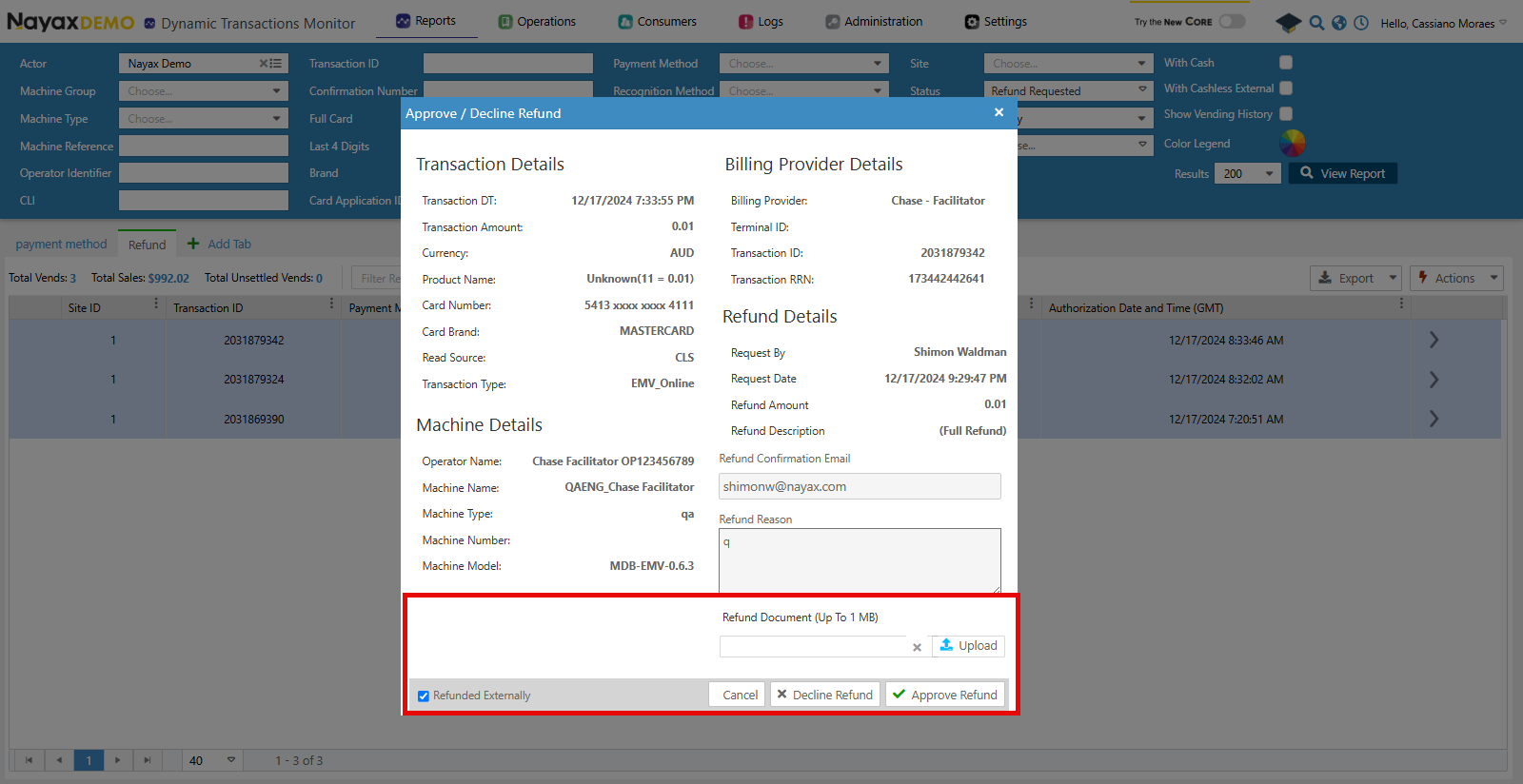Upload Refund Documentation
In cases where the customer contacts the billing provider directly for a refund, the IsRefundedExternally has to be set to true when accepting the refund and the file received by the billing provider added in the RefundedDocumentUrl
In Nayax Core, this is set when accepting or declining a refund by selecting Refunded Externally. You can upload the refund document. See the image below:

Lynx API
With Lynx API you can also upload the refund documentation to get the RefundedDocumentUrl the endpoint below is used for this:
AuthenticationRefer to the Security & Token page of this documentation to learn how to access your tokens and how to properly use them to authenticate your API requests.
Use the Upload Refund Documentation endpoint to upload the file received by the billing provider. See the request example below:
curl --request POST \
--url https://qa-lynx.nayax.com/operational/v1/payment/upload-refund \
--header 'Authorization: <YOUR_ACCESS_TOKEN>' \
--header 'accept: application/json' \
--header 'content-type: application/json' \
--data '
{
"FileName": "string",
"FileData": "string",
"TransactionId": 0,
"SiteId": 0,
"MachineAuTime": "2024-10-10T16:30:37.179Z"
}
'The table below details the body parameters of the request.
| Name | Type | Description |
|---|---|---|
| FileName | string | The name of the file being uploaded. |
| FileData | base64 | The base64-encoded content of the file being uploaded. You can use a PDF to base 64 online convertor. |
| TransactionId | int64 | The unique identifier of the transaction associated with the file. |
| SiteId | int32 | The unique identifier of the site where the transaction occurred. |
| MachineAuTime | date-time | The machine's authorization time is associated with the transaction. |
The
TransactionId,SiteIdandMachineAuTimeneed to be the same as sent in the refund request.
Once the request is done successfully, the response will contain a URL with the uploaded document.
{
"FileURL": "string"
}Now you can add this URL to the RefundedDocumentUrl flag when using the Approve Refund endpoint.
Updated 5 months ago